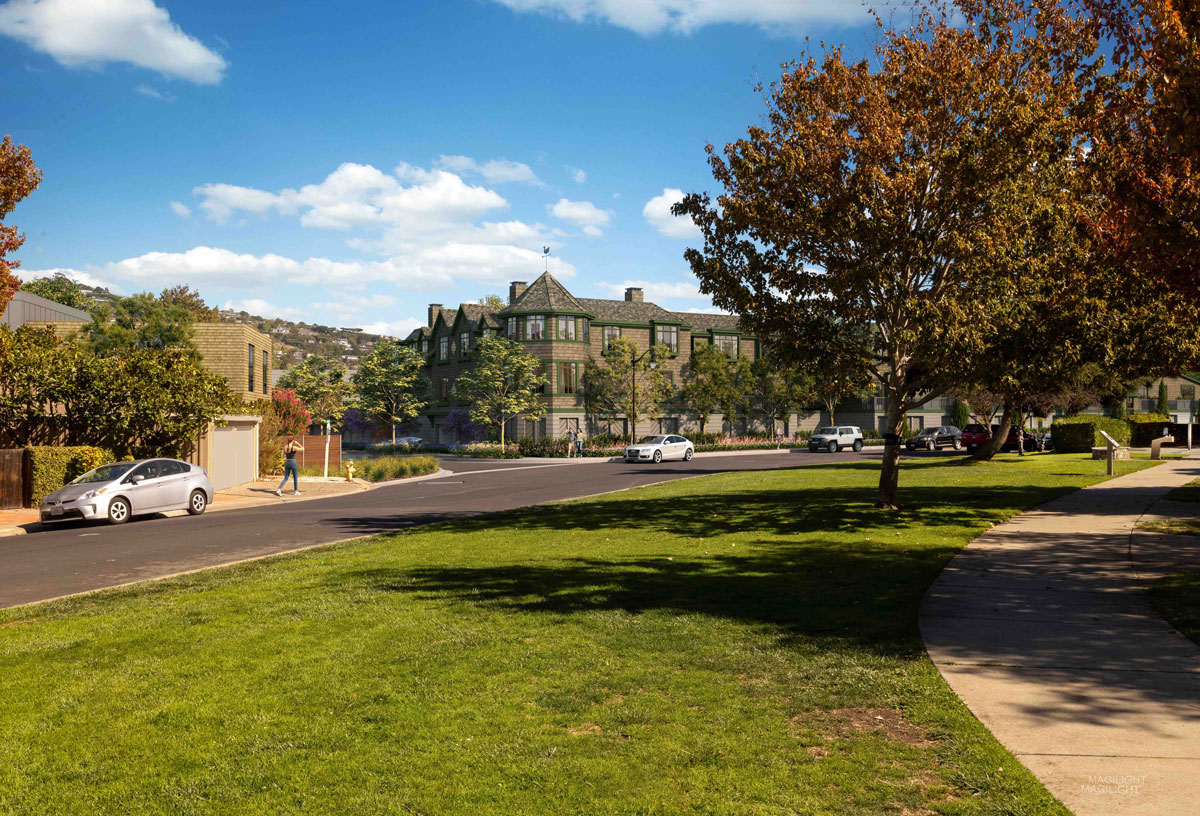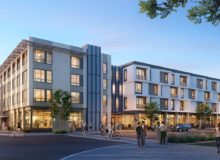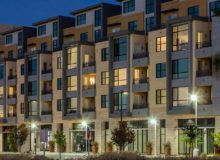North Bay Business Journal
January 17, 2023
Richard Halstead
Beginning next month, developers might be able to gain vested rights to build projects in some areas of Marin without having to worry about local planning review or zoning requirements.
That is because at least seven Marin cities and towns are on track to fail to meet a Jan. 31 deadline for getting their new housing elements approved by the state, housing advocates said.
The housing elements are supposed to outline how Marin municipalities propose to comply with an ambitious mandate from the state to create 10,641 new homes by 2031. Marin County has been assigned the task of zoning for an additional 3,569 homes in unincorporated areas over the same eight-year period.
The California Housing Accountability Act, signed into law by Gov. Jerry Brown in 2017, provides that if a California city or county lacks a “substantially compliant” housing element, the jurisdiction is precluded from using its zoning or general plan standards to disapprove any housing project that meets certain affordability requirements.
To be eligible for this so-called “builder’s remedy,” at least 20% of a developer’s proposed homes must be affordable for low-income residents or 100% of the homes must be affordable for moderate-income residents.
San Rafael, Novato, Larkspur, San Anselmo, Fairfax, Ross and Belvedere failed to submit a first draft of their housing elements to California’s Department of Housing and Community Development (HCD) for review as of Nov. 2, said advocacy organizations Californians for Homeownership and YIMBY Law.
As a result, they are incapable of meeting the Jan. 31 deadline, housing advocates said. Planning directors in many municipalities did not respond to requests for comment.
“The law is very clear that you cannot schedule adoption until HCD has been in possession of a draft of your housing element for at least 90 days,” said Matthew Gelfand, an attorney representing the Californians for Homeownership nonprofit.
Gelfand said jurisdictions are allowed to adopt their housing elements at the end of the 90-day period, but HCD is supposed to have an additional 60 days to certify the element.
“So the whole process is 150 days,” Gelfand said, “if you were to adopt on the same day you get comments back from HCD.”
Gelfand said his organization considers Belvedere to be the worst offender because it plans to adopt its housing element before submitting it to the state for review.
“They’re trying to doubly cheat the process by adopting without the draft and expecting HCD to review it as an adopted housing element rather than a draft housing element,” he said.
Alicia Murillo, an HCD spokesperson, said there was no official available to speak about the issue for publication.
Californians for Homeownership has informed Belvedere’s city attorney that it is “likely to immediately initiate litigation against the city if it moves forward.”
Gelfand said his organization and other housing advocates are also contemplating suing other Marin jurisdictions for failing to meet the Jan. 31 deadline.
“We don’t seek damages in our litigation,” Gelfand said. “Our goal will be primarily to establish that the builder’s remedy applies during this period. We’re going to work very quickly to get that established so any developers who wants to take advantage of the builder’s remedy has that option.”
Riley Hurd, a land use attorney in Marin, said, “I have more than one client considering going that route. There are multiple jurisdictions throughout Marin that are not going to meet the deadline. They aren’t even close.”
Hurd declined to say which of his clients are considering seeking the builder’s remedy. Hurd has represented Thompson Dorfman Partners, which has struggled to get approvals for a proposed 42-residence complex on the Belvedere Lagoon in Belvedere.
The proposal calls for the demolition of 22 market-rate residences at the 2.8-acre Mallard Pointe complex built in 1951. Twelve of the proposed new homes would be priced to be affordable.
Irene Borba, Belvedere’s director of planning and building, said the city is still investigating several issues related to the project, including whether under state law SB 330 the developer would be required to offer displaced residents a first right of return or relocation assistance.
Bruce Dorfman, a partner with Thompson Dorfman Partners, said that while he has no definite plans to employ the builder’s remedy, “it’s definitely an option.”
Last week, the Belvedere City Council discussed authorizing staff to submit the city’s housing element to HCD, but chose instead to continue the discussion to its meeting on Jan. 24. Borba said staff is revising the housing element in hopes of having the council adopt it then.









